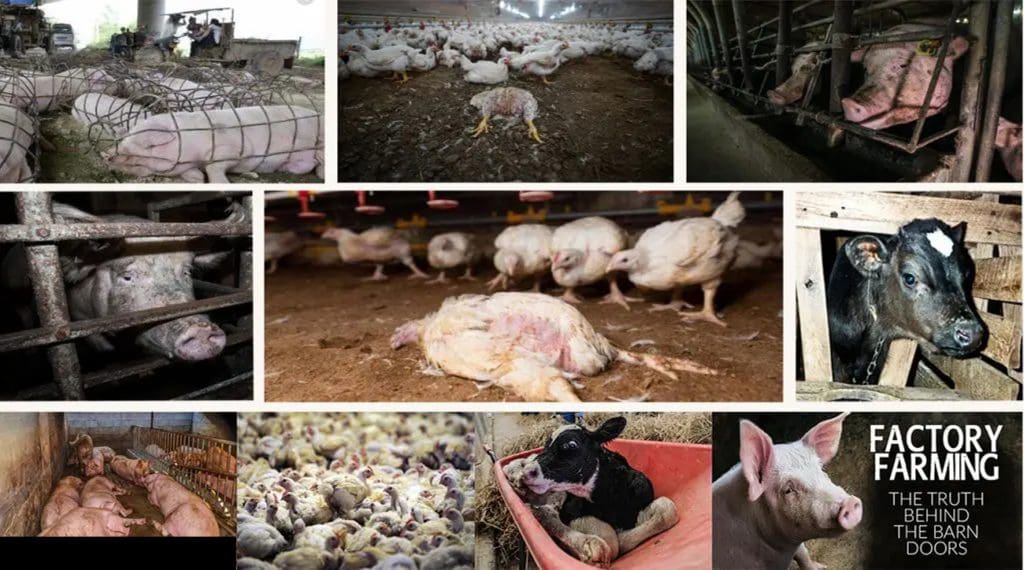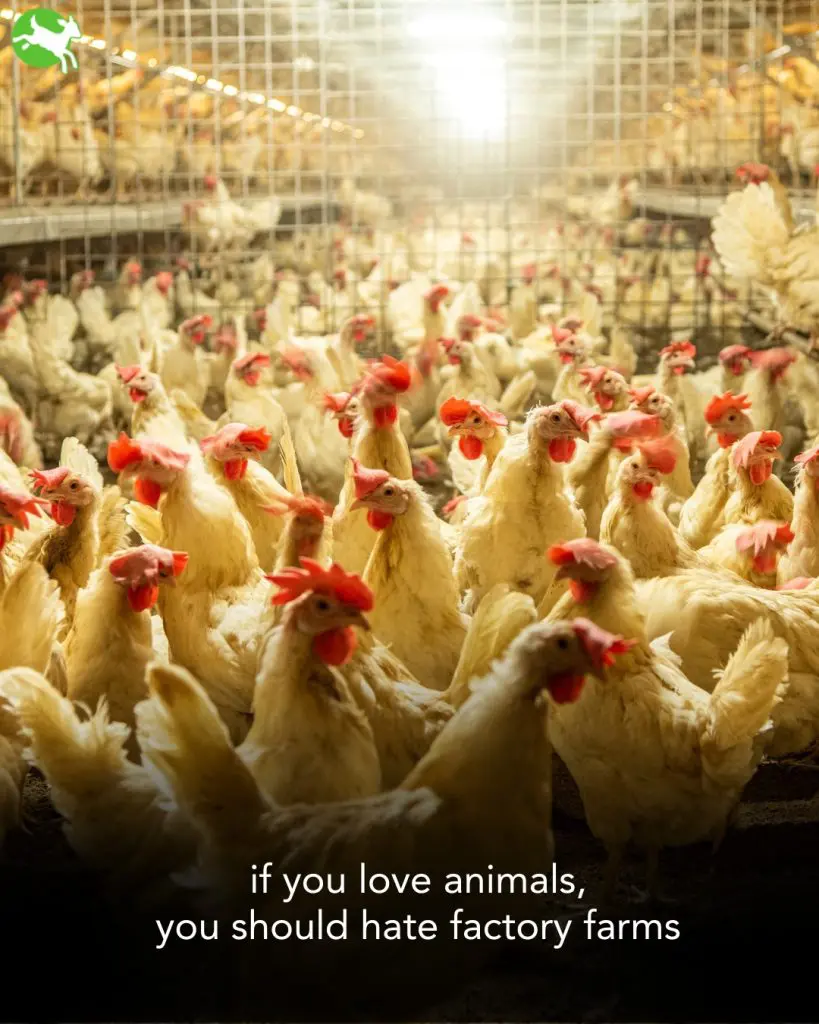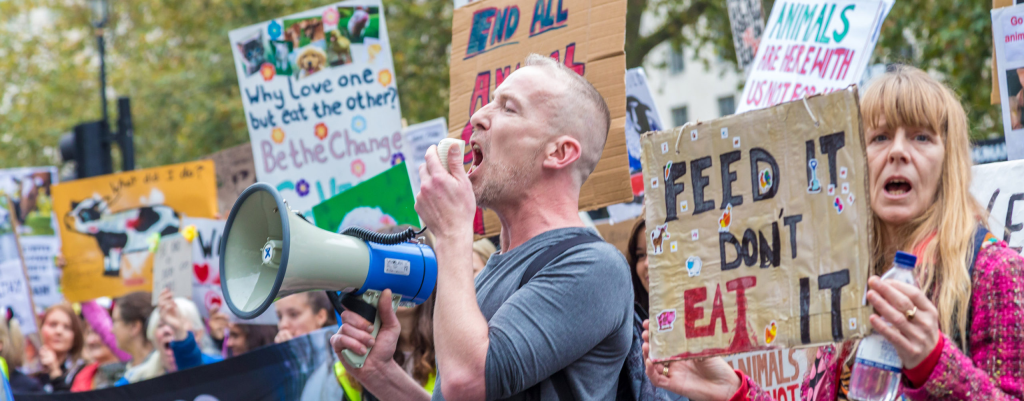Animal cruelty in factory farms is a pressing issue that demands attention and action. The growing awareness of this problem has led many individuals to adopt a vegan lifestyle as a way to combat animal cruelty. Veganism, which involves abstaining from the consumption and use of any animal products, plays a crucial role in reducing animal suffering in factory farms. By eliminating the demand for animal products, veganism directly challenges the practices of industrialized animal farming and supports the ethical treatment of animals. In this blog post, we will delve into the role of veganism in reducing animal cruelty in factory farms and explore the benefits of choosing a vegan lifestyle. Join us as we examine the link between factory farms and animal cruelty, discuss the contribution of veganism in reducing suffering, and shed light on the ethical considerations of factory farming. We will also explore how veganism can break the cycle of animal cruelty and the role of vegan advocacy in raising awareness about the issue. Finally, we will promote veganism as a solution to minimize animal cruelty in factory farms and create a more compassionate society. Let’s delve deeper into the topic and explore the transformative potential of veganism.

Understanding Veganism and its Impact on Animal Cruelty in Factory Farms
Veganism is a lifestyle choice that excludes the consumption and use of animal products. By eliminating the demand for animal products, veganism plays a crucial role in reducing animal cruelty in factory farms.
Switching to a vegan lifestyle supports the ethical treatment of animals and contributes to reducing their suffering in factory farms.
The Benefits of Choosing a Vegan Lifestyle to Combat Animal Cruelty
Choosing a vegan lifestyle can significantly reduce animal cruelty in factory farms by refusing to support industries that exploit animals. By adopting a vegan lifestyle, individuals can promote animal welfare and contribute to creating a more compassionate world.
Switching to a vegan lifestyle can have positive effects on personal health and the environment, in addition to combatting animal cruelty. Research shows that a plant-based diet can lower the risk of chronic diseases such as heart disease, diabetes, and certain types of cancer. It can also help maintain a healthy weight and improve overall well-being.
Moreover, raising animals for food production is a major contributor to environmental degradation. Factory farming is associated with deforestation, water pollution, and greenhouse gas emissions. By choosing a vegan lifestyle, individuals can reduce their carbon footprint and help mitigate climate change.
By embracing veganism, not only do individuals support the ethical treatment of animals, but they also make choices that promote personal health and protect the environment. It is a win-win situation that creates a more compassionate and sustainable world for both animals and humans.
Examining the Link Between Factory Farms and Animal Cruelty
Factory farms are notorious for subjecting animals to cruel and inhumane conditions in order to maximize production and profit. The industrialized and intensive methods of animal farming directly contribute to the prevalence of animal cruelty in these facilities.
Animals in factory farms are often confined to small spaces, deprived of natural behaviors and social interactions, and subjected to various forms of physical and psychological abuse. They are commonly subjected to overcrowding, unsanitary environments, and stressful handling practices.

Understanding the connection between factory farms and animal cruelty is crucial in addressing the issue and finding effective solutions. It requires recognition of the inherent problems within the current system of animal agriculture and the recognition of animals as sentient beings deserving of ethical treatment.
By examining the link between factory farms and animal cruelty, we can shed light on the urgent need for change. It is vital to advocate for the implementation of more compassionate and sustainable practices in the industry to reduce the suffering endured by animals in factory farms.
The Contribution of Veganism in Reducing Suffering in Farm Animals
Veganism directly contributes to reducing the suffering of farm animals by eliminating their exploitation for food and other products. By choosing a vegan lifestyle, individuals actively support the well-being and happiness of farm animals. The adoption of veganism plays a significant role in diminishing the demand for animal products, thereby reducing the suffering of farm animals in factory farms.
Benefits of Veganism:
Reduces the demand for animal products, leading to a decrease in animal cruelty in factory farms
Supports the ethical treatment of animals and promotes animal welfare
Contributes to creating a more compassionate society
Promotes personal health and well-being
Reduces environmental impact
Supporting Animal Well-being:
By adopting a vegan lifestyle, individuals prioritize the well-being of farm animals and acknowledge their rights to live free from exploitation and cruelty. This conscious choice to abstain from consuming animal products helps to break the cycle of suffering in factory farms.
Diminishing Demand:
The demand for animal products drives the existence of factory farms and the associated animal cruelty. By choosing veganism, individuals actively reduce the demand for animal products, leading to a decrease in the number of animals suffering in factory farms.
Exploring the Ethical Considerations of Factory Farming and Animal Cruelty
Factory farming raises ethical concerns due to the inhumane treatment of animals and the disregard for their welfare. Animals in factory farms are often confined in small and crowded spaces, subjected to painful procedures without anesthesia, and deprived of natural behaviors and environments. These cruel practices are solely driven by the need for profit and efficiency.

The link between factory farming and animal cruelty demands a reconsideration of our ethical responsibilities towards animals. It challenges us to question the morality of exploiting sentient beings for the sake of food production. Animals are capable of experiencing pain, fear, and suffering, and thus, have a fundamental right to be treated with compassion and respect.
Examining the ethical considerations of factory farming highlights the urgent need for change and the adoption of cruelty-free practices. It calls for a shift towards more sustainable and ethical alternatives that prioritize animal welfare and the overall wellbeing of our planet. Only by confronting these ethical concerns can we begin to address the root causes of animal cruelty in factory farms and work towards a more humane and compassionate food system.
How Veganism Can Help Break the Cycle of Animal Cruelty in Factory Farms
Veganism plays a crucial role in breaking the cycle of animal cruelty in factory farms by disrupting the demand for animal products. By choosing a vegan lifestyle, individuals actively participate in ending the cycle of suffering endured by animals in these farms.

By rejecting animal products, vegans encourage a shift towards more compassionate and sustainable practices in the food industry. This includes supporting ethical farming methods and promoting the well-being of animals.
Choosing a vegan lifestyle not only helps to minimize animal cruelty but also promotes a more environmentally friendly food system. Factory farming is a major contributor to greenhouse gas emissions and deforestation, while plant-based diets have a significantly smaller carbon footprint.
By joining the vegan movement, individuals can contribute to creating a food industry that prioritizes the well-being of animals over convenience. Veganism is an ethical choice that breaks the cycle of animal cruelty in factory farms and advocates for a more compassionate and sustainable future.
The Role of Vegan Advocacy in Creating Awareness About Animal Cruelty in Factory Farms
Vegan advocacy plays a crucial role in raising awareness about the widespread animal cruelty in factory farms. By advocating for veganism, individuals can educate others about the link between their choices and the suffering of animals in factory farms.
Vegan advocacy helps to shed light on the practices of factory farming and promotes ethical alternatives to reduce animal cruelty. Through campaigns, protests, and social media activism, advocates can reach a wide audience and inspire change.

By sharing information about the inhumane conditions, exploitation, and suffering that animals endure in factory farms, vegan advocates aim to create empathy and compassion towards farm animals.
Furthermore, vegan advocacy is crucial in debunking common myths and misconceptions about veganism, such as the belief that a vegan diet lacks nutrients or is inconvenient. Advocates can provide evidence-based information and resources to encourage others to consider veganism as a compassionate and sustainable lifestyle choice.
Overall, the role of vegan advocacy in creating awareness about animal cruelty in factory farms is vital for fostering a more compassionate society and promoting ethical alternatives to the current system.
Promoting Veganism as a Solution to Minimize Animal Cruelty in Factory Farms
Promoting veganism is essential in reducing animal cruelty in factory farms and creating a more compassionate society. By promoting veganism, we can encourage individuals to make conscious choices that prioritize the well-being of animals over convenience.
By adopting a vegan lifestyle, individuals actively participate in ending the cycle of animal cruelty perpetuated by factory farms. Choosing a vegan lifestyle encourages a shift towards more compassionate and sustainable practices in the food industry.
Furthermore, promoting veganism helps to address the root causes of animal cruelty in factory farms and advocates for a more sustainable and ethical food system. It is an effective solution to minimize animal cruelty and contribute to a more compassionate world.
Conclusion
Veganism plays a vital role in reducing animal cruelty in factory farms by eliminating the demand for animal products. By choosing a vegan lifestyle, individuals contribute to creating a more compassionate world and promote animal welfare. Furthermore, veganism has numerous benefits, including positive impacts on personal health and the environment. Factory farms are notorious for subjecting animals to cruel conditions, and understanding the link between factory farming and animal cruelty is essential in addressing the issue. Veganism directly contributes to reducing the suffering of farm animals by eliminating their exploitation for food and other products. It also breaks the cycle of animal cruelty in factory farms by disrupting the demand for animal products. Vegan advocacy plays a crucial role in raising awareness about animal cruelty in factory farms and promoting ethical alternatives. By promoting veganism as a solution, we can address the root causes of animal cruelty and advocate for a more sustainable and ethical food system. Overall, veganism is a powerful tool in combating animal cruelty and creating a more compassionate society for all beings.
4.3/5 - (25 votes)



